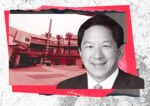Trending
British Columbia, flooded with Chinese money, to track condo buyers
“The days of avoiding taxes through condo flipping are over,” BC minister says

The Canadian province of British Columbia is taking another step to crack down on tax evasion through real estate, this time creating a registry to track ownership of new condominium units under construction.
British Columbia’s move follows an earlier 20 percent tax on foreign home buyers, which largely targets the flood of mainland Chinese who have sent home prices soaring double digits in the last four years, and have drawn accusations of tax illegalities.
Under the new registry law, developers will have to collect and report on purchase agreements for pre-sale condo units starting next year, including when the contracts get flipped and transferred to new owners, Bloomberg reported. The rules also require developers to make a “reasonable effort” to report on previous deals.
Developers in the province will typically use pre-sale purchase agreements to market new projects, giving buyers the right to obtain a unit when it is finished. It has been common recently to sell these rights from one buyer to the next at rising prices without taxes on the gains since the deals were impossible to track.
The information in the new database will be shared with the Canada Revenue Agency.
“The days of avoiding taxes through condo flipping are over,” Finance Minister Carole James said in a statement.
In May, the Canada Revenue Agency found that $169 million in unpaid taxes in British Columbia in 2016 were related to real estate transactions — not paying a goods and services tax upon obtaining the deed — as well as income tax.
In Vancouver, Chinese buyers were so active in the real estate market that prices climbed 30 percent a month in 2016. After province officials increased the tax on foreign buyers to 20 percent, the Chinese buyers moved to Toronto, which responded by introducing its own 15 percent tax on foreign buyers. The Chinese real estate website Juwai.com estimated that Chinese investors were responsible for $100 billion worth of property purchases outside China in 2016.
As The Real Deal reported in 2016, several factors, including the lack of a political will to raise taxes, anti-discrimination laws, and the relatively small impact of foreign investment, have prevented any significant talk of a foreign-buyer tax from gaining steam in New York City. [Bloomberg] – Eddie Small




